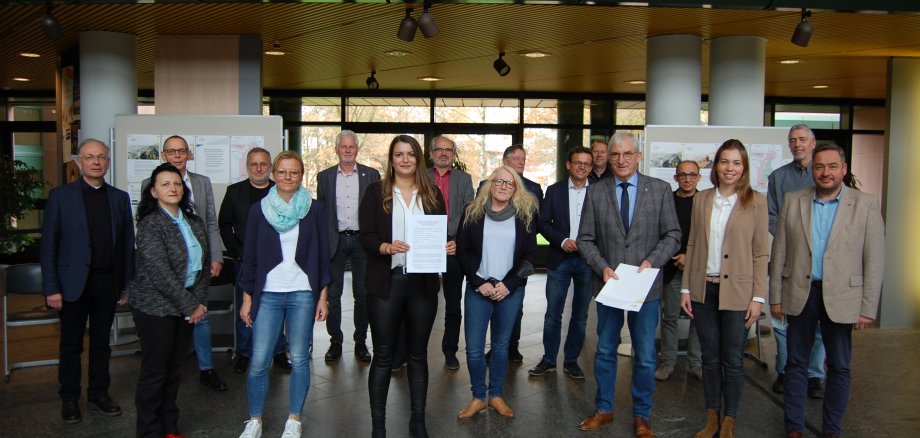Caring for the sick: the district works together with partners
In order to provide the best possible and most comprehensive support to mentally ill, mentally disabled people or people suffering from addiction, the district has been working together with partners from Waldeck-Frankenberg for years. This agreement of joint cooperation has now been renewed in order to be able to continue to provide good support to those affected and their relatives, but especially to people with impairments.
Together, all service providers, associations and organisations as well as the district have agreed on further cooperation - and also set this down in writing by signing a corresponding cooperation agreement. The Hesse State Welfare Association (Landeswohlfahrtsverband Hessen) as the supra-local provider of integration assistance, Vitos Haina gGmbH, the Kreisverband der Treffpunkte e.V., Lebenshilfe-Werk Kreis Waldeck-Frankenberg e.V., Bathildisheim e.V., PNS-Paritätische Nachsorge Sucht (PNS-Parity Aftercare for Addiction) and the district of Waldeck-Frankenberg as the provider of the specialised services of social affairs and health are all involved.
The aim of continuing the cooperation is to continue to cooperate in the future in the area of needs-based care and support for people with illnesses - and to continue to develop the quality of service provision in all areas on a joint basis. "Together with our partners, we are focusing on local support options that cover the entire area and meet the needs, are oriented towards the individual and geographical social space and are inclusive," explains the First District Commissioner and Head of the Health and Social Services Department Karl-Friedrich Frese. "At the same time, we remain in constant professional exchange in order to permanently adapt and further develop our services to meet the needs.
The reason for renewing the cooperation agreement is the new Federal Participation Act. It is intended to help implement the UN Convention on the Rights of Persons with Disabilities, regulates support for persons with disabilities in various areas of life and pursues the goal of developing integration assistance into a modern right to participation, individualising services for persons with disabilities and promoting autonomy and participation. Assistance should no longer be provided in an institution-centred way, but in a person-centred way, so that everyone can lead a self-determined life. The new cooperation agreement was adapted accordingly to this goal. In concrete terms, the merger means that the cooperation partners can work together in close and trusting cooperation, in the best possible and adequate way to meet the needs of the group of people.
